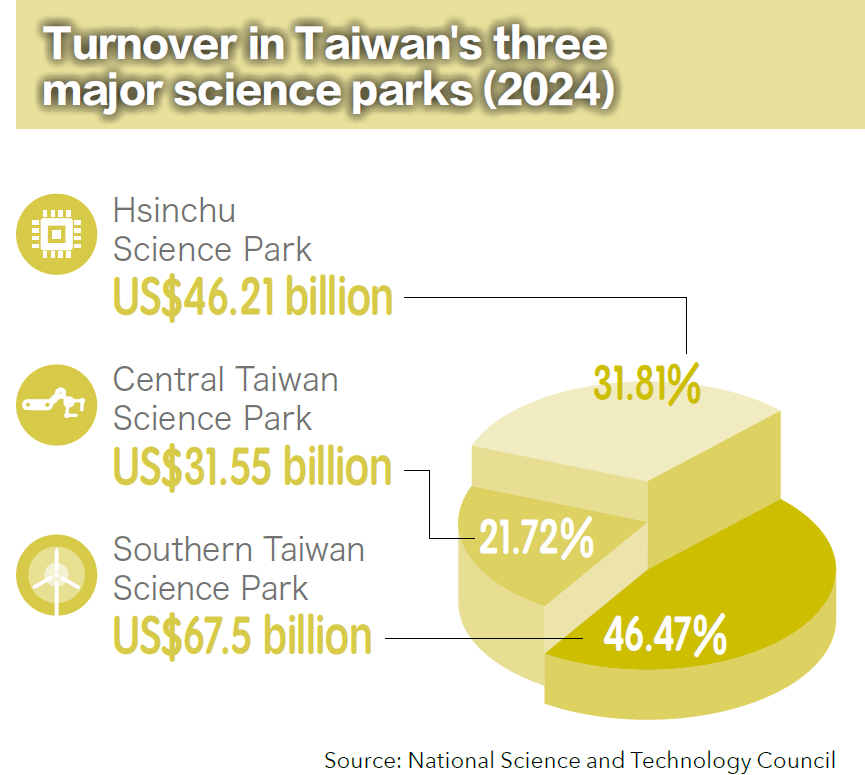The success of Taiwan’s high-tech enterprises is largely attributable to the government’s generous funding for applied scientific development. With government support, the Industrial Technology Research Institute, the National Institutes of Applied Research and the Institute for Information Industry all play important roles in the nation’s growth as a technological powerhouse by conducting research, aiding the private sector with R&D and exploring new technologies.
Supporting Innovation
ITRI’s expertise is illustrated by its awards. Over the past 17 years, it has garnered 66 R&D 100 Awards, as well as 23 Edison Awards since 2017 and nine Clarivate Top 100 Global Innovator awards since 2015. The institute has also played a pivotal role in nurturing companies that have gone on to achieve success in the global market. Among these are Taiwan Semiconductor Manufacturing Co. and United Microelectronics Corporation, renowned as global leaders in custom integrated circuit production.
Established in 2003, NIAR, known until March 2025 as National Applied Research Laboratories, combined seven national laboratories into an independent nonprofit institute under the NSTC.
Under the new name, NIAR remains committed to its core missions, including establishing R&D platforms, supporting academic research, promoting science and technology at the frontiers of knowledge, and fostering high-tech personnel.
In its role as a national laboratory, NIAR continues to work in sync with government policies and global trends to lead innovation. It pursues multidisciplinary integration and emerging technologies based on existing scientific research domains. Responses to environmental impact and social change include semiconductors, artificial intelligence, cybersecurity, uncrewed systems, netzero technology and biotechnology. NIAR is committed to national development through the establishment of R&D platforms and enabling of new technologies.
The goal of III is to raise Taiwan’s global competitiveness by providing a platform for digital transformation.

The institute conducts R&D on innovative information communications technology products and applications. As a think tank for policymaking and promoting talent cultivation, it also plays a key role in advancing ICT development in the public and private sectors. More than 500,000 professionals have received training through III over the past four decades.
Taiwan’s tech ecosystem provides an ideal launchpad for global investors seeking to establish a foothold in Asia. Technology developers, engineering service providers and local venture capital firms bring deep expertise in collaborative tech innovation. This spirit is embodied by Taiwan Tech Arena, a dynamic hub for startups that draws ambitious entrepreneurs from around the world.
With bases in both Taipei and Tainan, TTA brings together accelerators, venture capitalists and industry leaders to foster a vibrant international startup ecosystem. It serves as a springboard for local and global tech enterprises.


 The institute conducts R&D on innovative information communications technology products and applications. As a think tank for policymaking and promoting talent cultivation, it also plays a key role in advancing ICT development in the public and private sectors. More than 500,000 professionals have received training through III over the past four decades.
The institute conducts R&D on innovative information communications technology products and applications. As a think tank for policymaking and promoting talent cultivation, it also plays a key role in advancing ICT development in the public and private sectors. More than 500,000 professionals have received training through III over the past four decades.